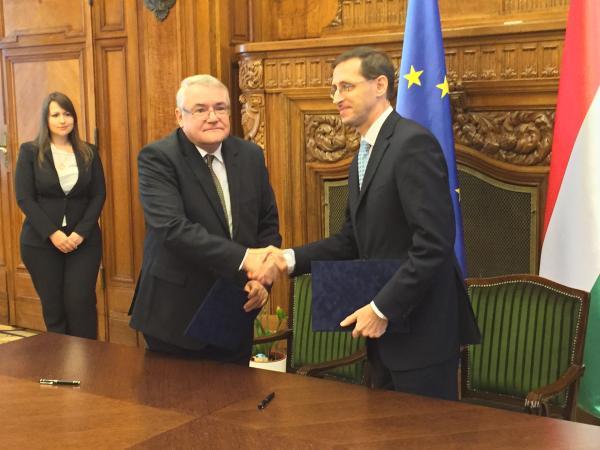
The European Investment Bank (EIB) is granting EUR 500 million, the first tranche of an approved loan amount of EUR 1.5 billion, to Hungary to co-finance priority projects receiving support from the European Regional Development Funds and the European Social Fund within the 2014-2020 EU programming period.
On the one hand the EIB loan will back development of the knowledge economy, particularly RDI, higher education and ICT, and on the other it will contribute to improving education and employability, health and social inclusion. Furthermore, it will also focus on projects fostering increased use of renewable energy, improving energy efficiency and upgrading tourism facilities, while regional projects will address sustainable urban and regional development.
Mr László Baranyay, EIB Vice-President, commented: “The EIB’s loan will co-finance strategic projects in Hungary with a total investment volume of nearly EUR 15 billion. The combination of the EIB loan and EU grants will enable Hungary to meet its national strategic priorities – supporting sustainable economic growth and improving the everyday life of citizens by boosting labour productivity, promoting economic and inclusive growth and increasing the number and quality of jobs”.
Mr. Mihály Varga, Minister for National Economy said: “We signed today the first part of the “Structural Funds Co-financing II.” framework loan for the co-financing of four Operational Programmes. We are thankful for EIB for co-financing these Programmes under which the Hungarian State would like to implement priority projects in the field of economic development, research and development (R&D), SME financing, employment, education, health care, regional development and tourism, which are expected to foster economic and social development in Hungary and the further integration within the EU.”
The EIB financing is being granted in the form of a Structural Programme Loan. In addition to large-scale projects, the EIB loan may also be used to finance smaller schemes, which, due to their limited size, would otherwise not qualify for direct EIB financing.
The EIB has a long history of excellent cooperation with Hungary. Earlier this year the EU Bank provided EUR 500 million for co-financing projects in Hungary under the country’s Integrated Transport Development and Environment and Energy Efficiency Operational Programmes and the Connecting Europe Facility.

Photographer: EIB ©To be defined
Download original

Photographer: EIB ©To be defined
Download original

Photographer: EIB ©To be defined
Download original

Photographer: EIB ©To be defined
Download original